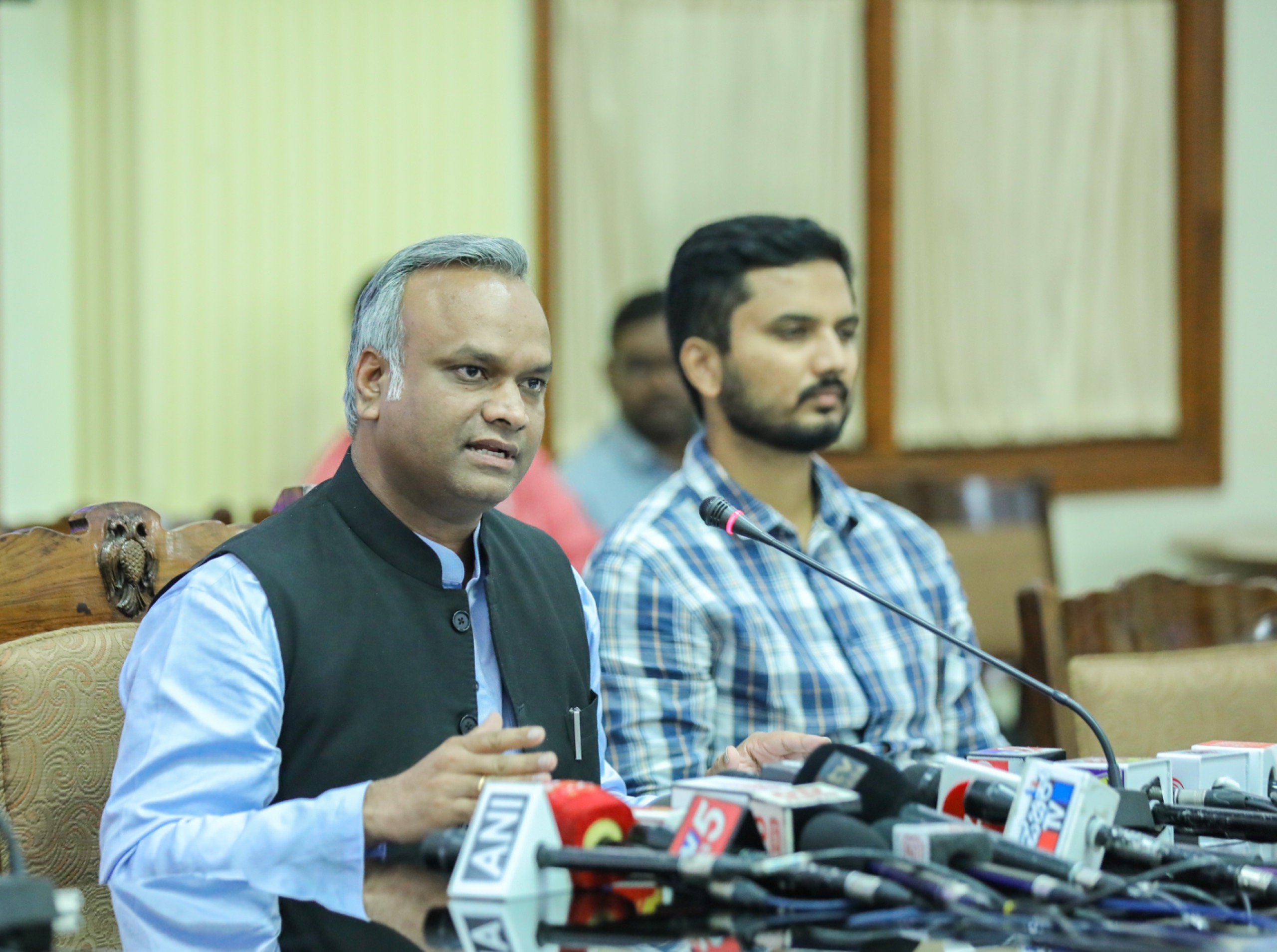The proposed committee will feature an oversight committee, review SPOC, and nodal officers, as well as analytics and capacity-building teams.

Minister for Information and Technology and Biotechnology Priyank Kharge rolled out the framework structure of the fact-checking unit in Bengaluru. (Supplied)
In its effort to combat the proliferation of fake news and misinformation across social media and other platforms, the Karnataka government has unveiled a new, comprehensive framework for its forthcoming fact-checking unit that is being keenly watched by both civil society as well as the Opposition.
Karnataka’s Minister for Information Technology and Biotechnology, Priyank Kharge, shared the intricacies of this proposed entity in a press conference at Vidhana Soudha in Bengaluru on Thursday, 14 September.
“The fact-checking body, a misinformation combat cell, will feature an Oversight Committee and a designated point of contact for review, along with nodal officers. The team’s primary responsibilities will encompass fact-checking, communication management, and outreach,” said Kharge.
“The model would be transparent, apolitical, and unbiased,” the minister said, and added: “Hunting of misinformation, disinformation, and mal-information will be conducted in Kannada, English, and other regional languages.”
This fact-checking unit will operate in accordance with the existing laws and use Artificial Intelligence (AI).
With this initiative, Karnataka is said to become the first state in India to announce a framework for its fact-checking unit.
This announcement follows closely on the heels of an FIR registered by the Karnataka Police against a Hindi news channel and its Consulting Editor Sudhir Chaudhary for allegedly disseminating false information pertaining to a state government’s subsidy scheme for minorities.
Following the incidents of alleged forgery of an MLA’s letter, the Congress government had announced in August that it would set-up an exclusive fact-checking unit to combat fake news in Karnataka.
Chief Minister Siddaramaiah had also chaired a meeting on initiating measures to check fake news that has become a threat to democracy by polarising society. The decision to implement the cybersecurity policy was taken at the same meeting on 21 August.
The Congress government announced the much-awaited comprehensive framework, harnessing AI and existing laws, to set-up a fact-checking unit to counter the proliferation of false information.
Minister Kharge told reporters, “Right from the Chief Election Commission to the Chief Justice of India to the prime pinister, all agree that fake news is a threat to democracy and there are various reports that suggest fake news misinformation, disinformation, and mal-information (MDM) is creating chaos in our society.”
“Well within the framework of the Constitution, we are coming up with a working model to curb misinformation and fake news,” he added.
Stressing transparency, political neutrality, and impartiality, Kharge emphasised, “The process would prioritise primary sources, disclose all references, provide unequivocal information in cases of ambiguity, and transparently correct any inaccuracies as new information emerges.”
He continued, “If there is evidence of malicious intent aimed at disrupting communal harmony or engaging in fraudulent dissemination of fake news on platforms, such cases would be referred to the Home Department to initiate formal complaints and necessary actions.”
The proposed unit will feature an Oversight Committee, review SPOC (Specific Point of Contact), and nodal officers. The cell will incorporate an analytics team, charged with monitoring the information landscape, providing early intelligence, and tracking the sources of information disorders.
A capacity-building team is also envisaged, focusing on public awareness campaigns and the development of applications to bolster the information ecosystem.
The proposed Oversight Sommittee will comprise key members from diverse backgrounds, including Head of Department of Information Technology, Biotechnology, and Science & Technology; Additional Director General of Police (Intelligence/CID); a representative from the Department of Information and Public Relations; MD of Karnataka Innovation and Technology Society; Dean of Electrical, Electronics, and Computer Sciences at Indian Institute of Science (IISc); Additional Advocate General; Central Head of CySecK (Centre of Excellence in Cyber Security); and representatives from civil society.
The review SPOC will include the Superintendent of Police of Intelligence or anybody decided by the Home Department.
The guideline principles of the fact-checking unit are as follows:
It will be apolitical and unbiased
MDM hunting in both Kannada, English, and other regional languages
It will rely on primary sources wherever available
It will disclose all sources referred
Where facts are not clear, it will provide all available, unambiguous information
It will provide details of methodology adopted
It will make transparent corrections when new facts come to light
Legal action will be initiated as per the existing laws: IT Act 2000, IT Act (Amendment) 2008, Indian Penal Code, and Disaster Management Act, 2005.
Explaining the procedural aspects, Kharge outlined, “The fact-checking agencies would investigate public submitted or self-flagged content, conduct initial analyses, and submit their findings to the state government.”
“If content requires removal, the Union government would be informed to take appropriate action. Every social media platform maintains its own public policy, and content in violation of the law would be reported to the respective platform for removal,” elaborated Kharge.
He further said, “Fake news is creating a certain unrest and threat to democracy and that puts society in a state of bother. This effort is being made to curtail fake news and not with an intention to put anyone behind bars. This is being rolled out in the interest of democracy and interest of free speech.
“We will soon roll out this fact-checking unit.”

May 19, 2024

May 19, 2024

May 19, 2024

May 18, 2024

May 18, 2024

May 18, 2024